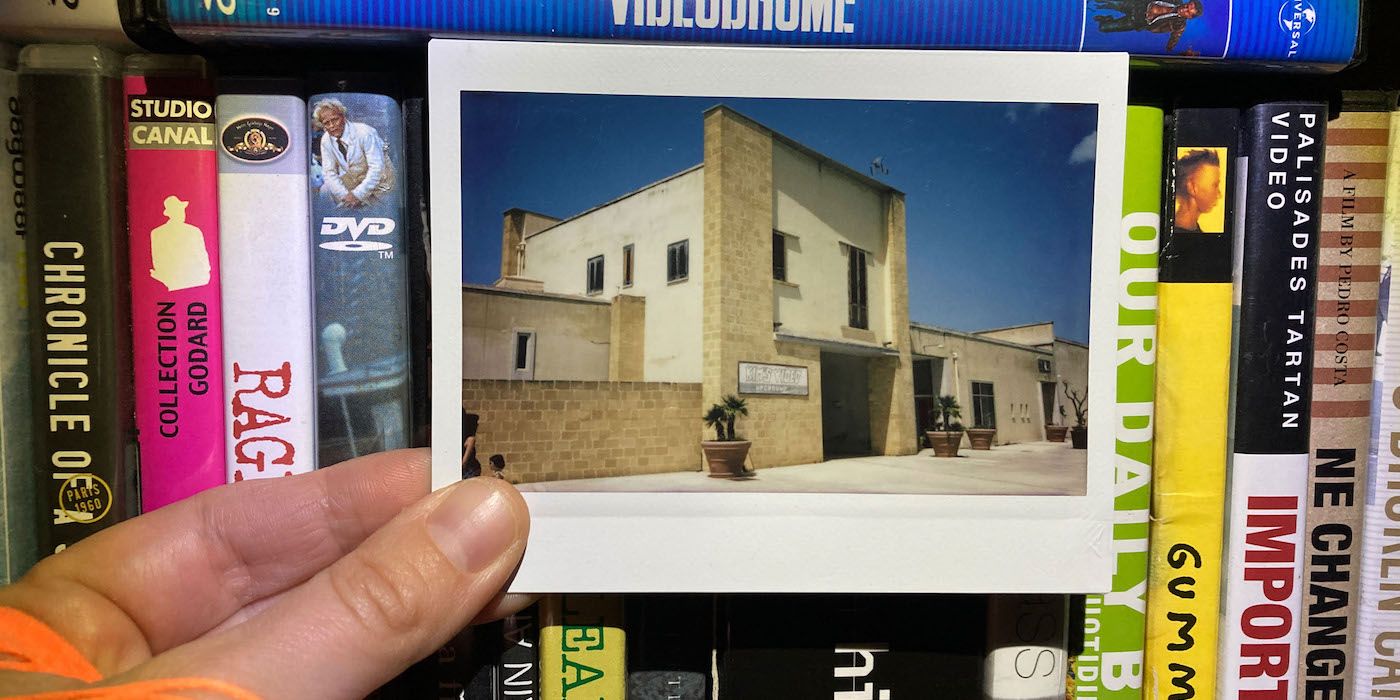When I first read about Kim's Video, the iconic video store in New York City that housed an eclectic and unique collection of films from all over the world, I was immediately sucked into the idea of a documentary on this beloved relic. After all, I grew up in the time of video rental shops and watched as they disappeared into the ether with the introduction of streamers like Netflix. Kim's Video felt like a documentary that was tailor made for film lovers and people who grew up in that generation.
And in many respects, that's what it is. The story about how the owner, a Korean immigrant named Yongman Kim, went from owning a dry cleaning store to opening up a small cluster of video shops was intriguing. His love for movies was clear from the get-go. Kim's not only housed major studio movies, but he would send people out to film festivals for movies that he knew might never see the light of day and bring those movies back to his shop. He rented out bootlegs of movies that were inaccessible in an age before the internet. He even got raided by the FBI at one point.
He seemed to be the pinnacle of cool, able to distinctly understand the value of film no matter what its budget or genre. When his store closed, and he curiously donated his collection to a small town in Italy rather than to NYU, the story became even more curious. The small town of Salemi, Sicily was hardly an arts town, and years after the initial publicity of the collection's move to this Italian village faded, the memory of the collection also faded in people's minds. The town itself was entrenched in mafia connections and corruption.
However, directors David Redmon and Ashley Sabin get a bit too lost in the weeds when it comes to their feature about Kim's Video. For one, Redmon, who narrates the documentary, turns the doc into a bit of a diary. Name-dropping films like Citizen Kane or The Mirror by Andrei Tarkovsky in the same breath as his own journey while investigating the truth of what happened to the video collection throughout the film.
For some, documentarians getting involved in their own documentary can add a personal touch, but there is so much interesting story to tell when it comes to Kim's Video, be it Yongman Kim's own personal history with film or the involvement of the Italian mafia and law enforcement, that Redmon's own personal narration feels intrusive. By the end of the documentary, I felt like I knew too much about Redmon's life and not enough about the actual subject of the film. And that's disappointing, because it's very clear that the glimpses we see into the story behind Kim's Video justify a longer film with far more detail and investigation.
Instead, we're treated to a heist at the end of the documentary that feels self-indulgent. The documentary is a bit too playful, with Redmon, Sabin, and their friends leaning a bit too far into the world of Ocean's Eleven, donning masks with the faces of Agnès Varda or Jean-Luc Godard in order to enact some sort of vigilante justice for the videos. It's cutesy and ultimately a success for the physical media, but we spend too much time with them. The reality is, I don't care about Redmon's own personal journey with film, I care about the story of Kim's Video. When something as bizarre and outlandish as this story exists, I want to know about all the aspects of the story. Only after I have been fully regaled will I accept auxiliary stories from the filmmaker.
I hope that someone else decides to tell the story of Kim's Video again one day, because Kim's Video by Redmon and Sabin is incomplete, and a little too self-obsessed to do such an interesting story justice. I left my screening hungry for more information, feeling utterly unfulfilled. I only knew the surface-level story, something that I could likely get from a news piece rather than a documentary that had access to the subjects involved. Kim's Video is about one man's obsession with film, but that one man isn't Kim, and it isn't any of the other subjects in the documentary. It's the documentarian himself.
Rating: D+


